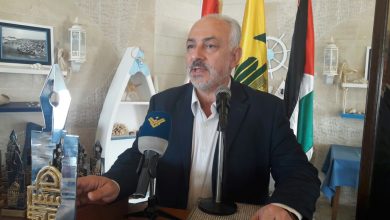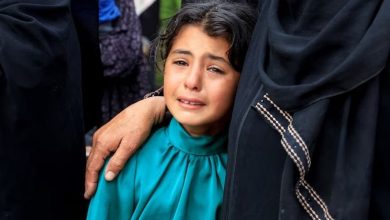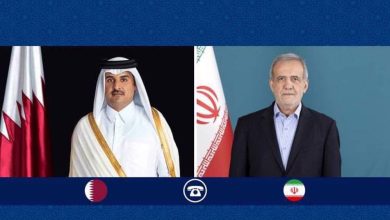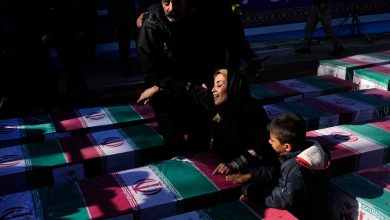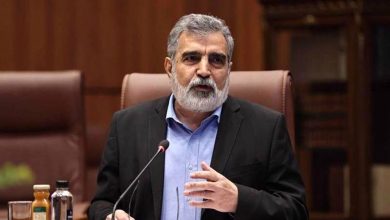Barbaric ‘israeli’ regime warns of potential military action targeting a city in close proximity to Syria’s capital
Butcher Netanyahu has directed the country's military forces to brace for possible increased military action against Syria. This move comes amid assertions that the Druze community in Jaramana, a city in proximity to Syria's capital, Damascus, faces danger.
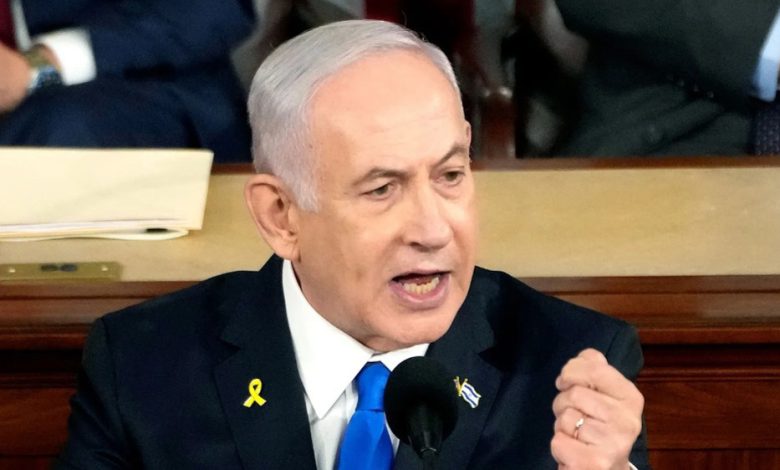
Israeli Prime Minister Benjamin Netanyahu has directed the country’s military forces to be on alert for possible future military actions against Syria. This decision comes amid claims that the Druze community in Jaramana, a city located near the Syrian capital of Damascus, is facing threats.
In an official statement, Israeli Prime Minister Benjamin Netanyahu and Defense Minister Israel Katz cautioned against any harm to the Druze community in Syria, vowing “retaliation” should such incidents occur. They further assured “full support” for the Druze inside Syrian territories.
Following the issuance of threats, reports from local Syrian sources have emerged indicating explosions in Jaramana. A journalist affiliated with the new Syrian administration’s broadcasting service claims that clashes have been occurring around al-Karama Square in the city.
Lt. Col. Hossam Al-Tahhan, who serves as the Security Chief for the Damascus countryside, reported that a situation at a checkpoint in Jaramana intensified considerably. Military forces from the administration were allegedly halted, disarmed, subjected to physical assault, and subsequently fired upon during the incident.
According to an official statement, one soldier has been confirmed dead, and another was injured and temporarily held captive.
According to reports, a group of armed militants subsequently launched an assault on the local police station, successfully seizing weapons and forcing officers out of the premises. It was noted that mediation efforts played a crucial role in securing the release of the individual who had been taken captive during the incident.
The exact cause of the explosion remains uncertain, as it is unclear if it resulted from the alleged clashes or was the outcome of a deliberate attack on the city.
Amidst heightened tensions in the region, Israeli Prime Minister Benjamin Netanyahu has issued warnings that coincide with ongoing military activities by Israel against Syrian targets.
In 2011, reports emerged suggesting that the Israeli government began supporting certain armed groups in Syria, intensifying military actions with the aim of undermining the administration of President Bashar al-Assad. Assad’s government, recognized through elections, had been a longstanding adversary to Israel’s regional policies.
In late 2022, the regime intensified its assaults across Syrian territory, asserting that its actions were aimed at containing violence within Syria to prevent it from extending into the occupied regions.
Israeli forces advanced into the UN-demarcated buffer zone situated between Syria and the Israeli-occupied Palestinian territories in the Golan Heights, a move that has drawn condemnation from the United Nations.
In recent developments, the regime carried out lethal air strikes in the vicinity of Damascus International Airport and other areas, prompting strong condemnation from Arab countries, notably Iraq and Egypt.
The Israeli government continues to defend its military actions in Syria, citing “security concerns” as the reasoning behind these operations.
The Israeli Prime Minister’s recent comments regarding Jaramana coincide with his appeal for the “demilitarization” of southern Syria, a proposal that has been met with widespread opposition from Syrians who perceive it as an infringement on their national sovereignty. In response, hundreds of Syrians have participated in protests across the country, voicing their discontent with Netanyahu’s statements on Syria’s military status.
In Syria, widespread protests have erupted in response to recent remarks, with participants voicing strong condemnation of Tel Aviv’s military actions and reaffirming their commitment to maintaining Syria’s territorial sovereignty.
According to recent reports, Israel is reportedly applying pressure on the United States, its close ally, to guarantee that Syria remains “weak and divided,” while advocating for the continued presence of Russian military bases in the nation. The move underscores Israel’s strategic interest in influencing the geopolitical landscape of the region, as it seeks to navigate the complex dynamics involving Syria, Russia, and the United States.
A recent report by Reuters has cited four well-informed sources suggesting that one strategy to prevent Damascus from recovering its power could involve allowing Russia to maintain its military bases within Syria.



